
Find Help
More Items From Ergsy search
-

Do I need to inform HMRC about the death?
Relevance: 100%
-

The new death certification process in the UK
Relevance: 71%
-

How do I notify HMRC of someone’s death?
Relevance: 71%
-

Alcohol-Related Deaths in Scotland
Relevance: 70%
-
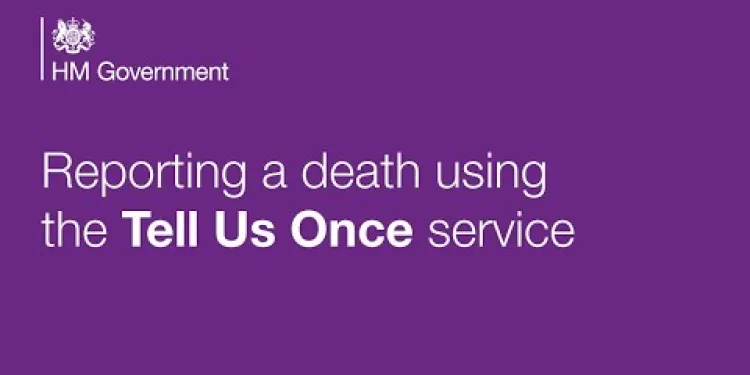
Reporting a death using the Tell Us Once service
Relevance: 67%
-
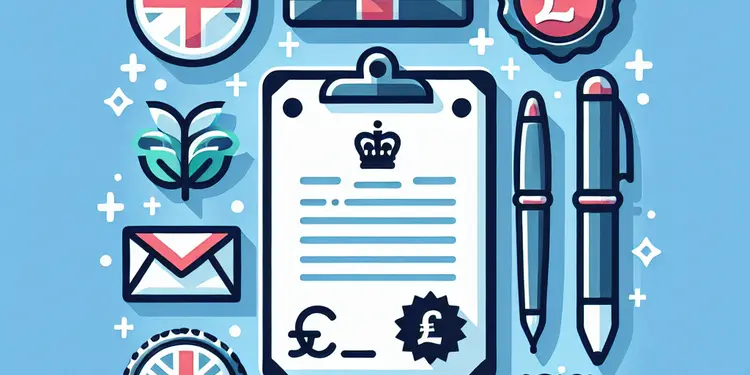
What documents are required to register a death?
Relevance: 66%
-
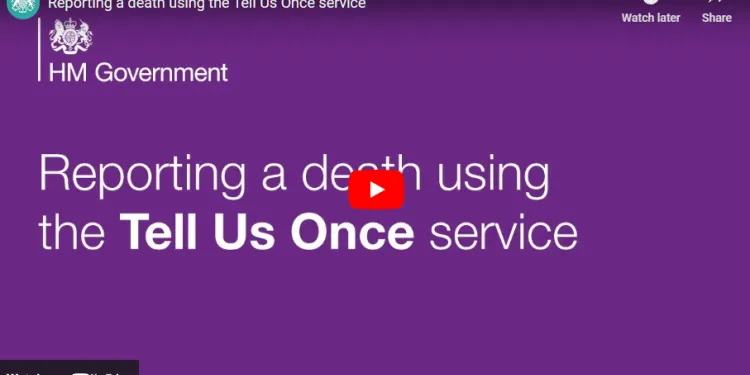
Reporting a death using the "Tell Us Once" service
Relevance: 64%
-
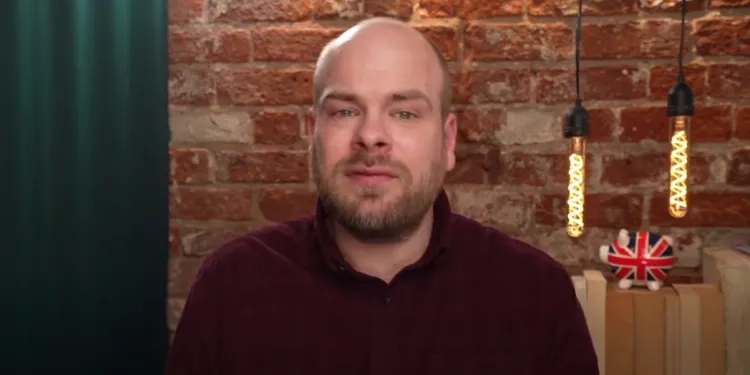
What Happens to Tax Debt After Death? (UK Laws)
Relevance: 62%
-
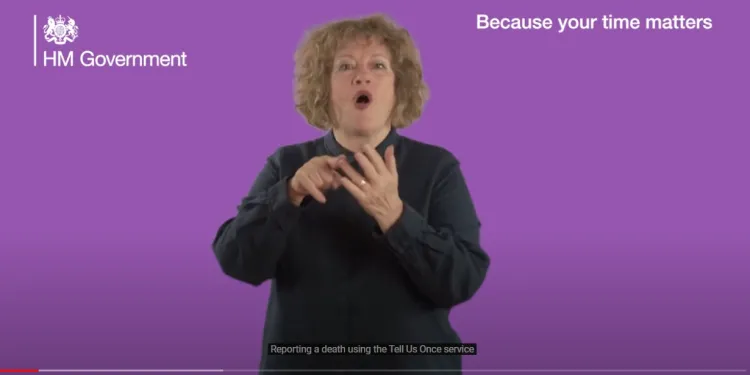
Reporting a death using the Tell Us Once service - Sign Language Version
Relevance: 61%
-

What happens to the pension benefits upon the death of a firefighter?
Relevance: 59%
-

Can I take bereavement leave for the death of a close friend?
Relevance: 59%
-

How soon after death can a burial take place?
Relevance: 54%
-
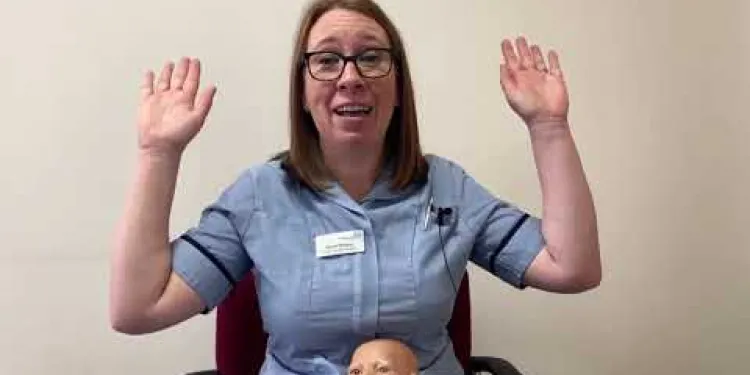
Safe sleeping and reducing the risk of Sudden Infant Death Syndrome (SIDS)
Relevance: 49%
-
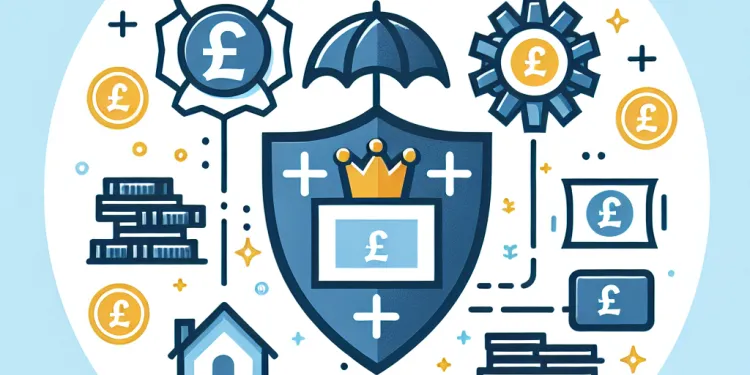
How is Inheritance Tax (IHT) dealt with after death?
Relevance: 47%
-

Are companies required to inform me if my data is breached?
Relevance: 35%
-
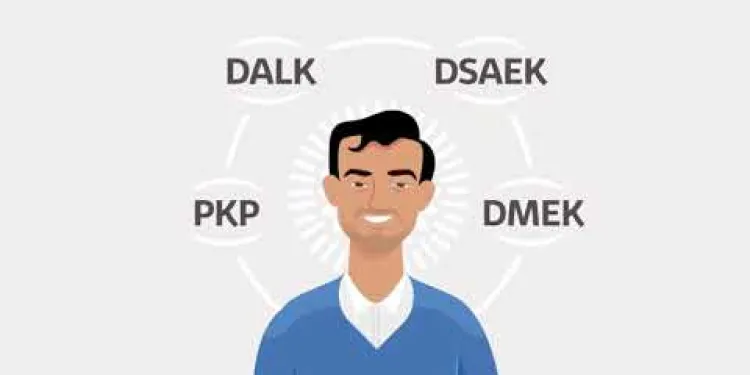
Cornea transplant patient Information
Relevance: 35%
-
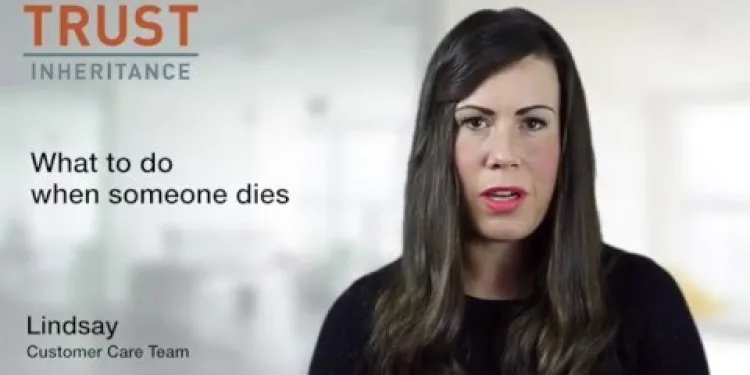
What to do when someone dies
Relevance: 35%
-

Where can I find the latest information on the EV grant?
Relevance: 35%
-

How are consumers informed about a product recall?
Relevance: 35%
-

Why is it important to update my account recovery information?
Relevance: 35%
-

How are customers being informed about their eligibility for refunds?
Relevance: 35%
-
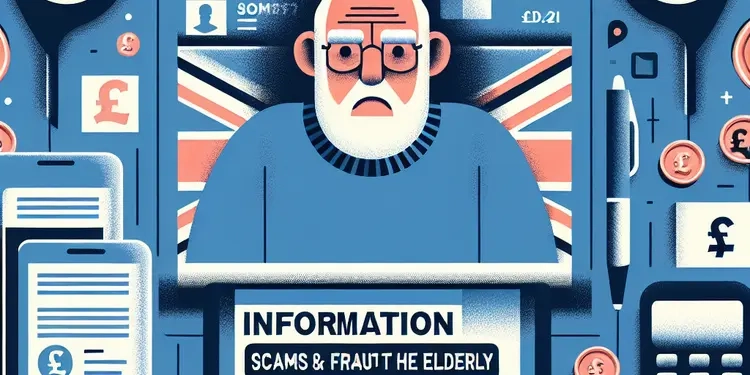
Information on scams and fraud that targets the elderly.
Relevance: 34%
-

What information do I need to provide to check for breaches?
Relevance: 34%
-

What should I do if I find my information in a data breach?
Relevance: 34%
-

Can I find official information on Nimbus and Stratus?
Relevance: 34%
-

Pre chemotherapy Information Video
Relevance: 34%
-

Do I have to provide personal information to access a food bank?
Relevance: 34%
-
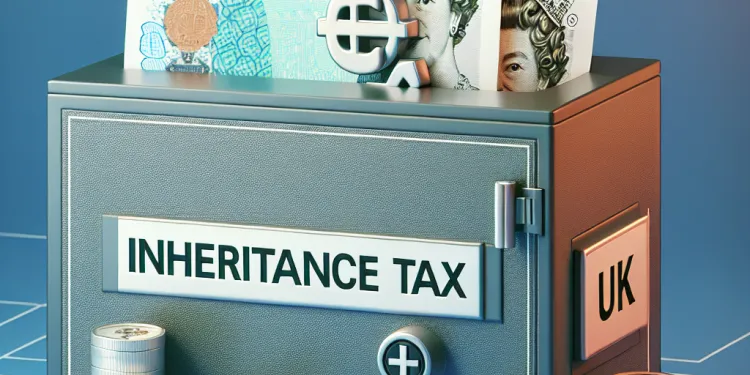
Where can I find more detailed information on inheritance tax?
Relevance: 33%
-

What information do I need to check for overpayments?
Relevance: 33%
-

What information do I need to access a food bank?
Relevance: 33%
-

What sources should I consult for information on Covid-19?
Relevance: 33%
-

What information do I need to provide to claim my refund?
Relevance: 33%
-

What type of information can be exposed in a data breach?
Relevance: 33%
-
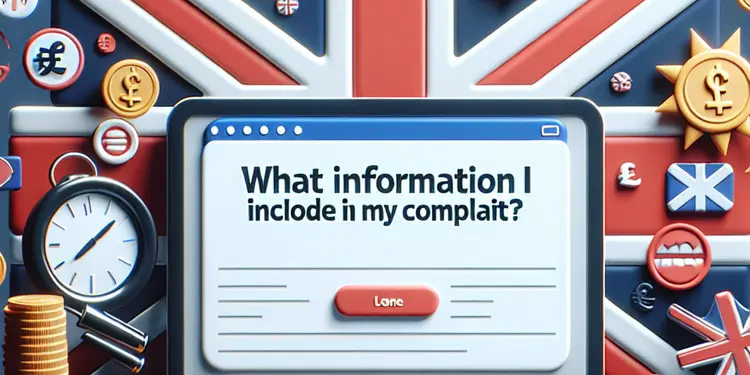
What information should I include in my complaint?
Relevance: 33%
-

What information do I need to provide to register with an NHS dentist?
Relevance: 33%
-

Can scammers access my information through social media?
Relevance: 33%
-

How do I know if my personal information was part of a data breach?
Relevance: 33%
-

Who should I contact for more information about the test?
Relevance: 33%
-

What is the first step in arranging a funeral in the UK?
Relevance: 32%
-

Where can I get more information about my pension?
Relevance: 32%
Introduction
When a loved one passes away, there are many administrative tasks to handle, and informing HM Revenue and Customs (HMRC) about the death is an important step. This ensures that the deceased’s taxes are accurately managed and helps prevent any unnecessary stress or complications later on. Here, we explain the importance of notifying HMRC and the process you need to follow.
Why Informing HMRC Is Important
Informing HMRC about the death of an individual is crucial for several reasons. Firstly, it allows HMRC to update their records, ensuring that any tax obligations and benefits are correctly addressed. Failure to inform HMRC could lead to incorrect tax calculations or delays in processing the deceased’s estate. By notifying HMRC, you help ensure that any outstanding taxes are settled, potential refunds are processed, and tax-related correspondence is ceased.
When to Inform HMRC
It is advisable to inform HMRC as soon as possible after registering the death. This will facilitate a smoother probate process and help avoid any tax complications. Ideally, you should aim to complete the necessary notifications within a few weeks of the death, although the exact timeline may vary depending on individual circumstances.
How to Inform HMRC
You can inform HMRC about a death online, over the phone, or by using their Tell Us Once service. The Tell Us Once service is particularly convenient, as it allows you to notify several government agencies in one go, including HMRC, the Department for Work and Pensions, and local councils. If you choose to contact HMRC directly, be prepared to provide details such as the deceased’s name, National Insurance number, date of birth, and the date of death.
What Happens Next?
Once HMRC has been informed of the death, they will update their records accordingly. If the deceased was in employment or receiving a pension, HMRC will work to finalize any outstanding pay or tax refunds. If you are the executor of the will or managing the estate, you may need to handle additional tax matters, such as completing a Self Assessment tax return or paying any Inheritance Tax due. HMRC might also send you a tax summary for the deceased to review.
Conclusion
Notifying HMRC about the death of a loved one is an essential part of managing their affairs. It ensures that tax matters are correctly resolved, which can prevent future headaches and financial issues. While it might seem like a daunting task during a difficult time, the process is straightforward and supported by various services to ease the burden. By understanding your responsibilities and acting promptly, you can help ensure that the estate is settled smoothly and in accordance with the law.
Introduction
When someone you love dies, there are many things you need to do. One important thing is to tell HM Revenue and Customs (HMRC) about the death. This is so the dear one’s taxes are handled right. It also stops problems later. This guide tells you why it’s important to tell HMRC and how to do it.
Why Informing HMRC Is Important
Telling HMRC when someone dies is very important. They need to update their records. This makes sure taxes and benefits are correct. If you don't tell them, there might be mistakes, or things might take too long. When you tell HMRC, it helps settle taxes owed, get any refunds back, and stop tax letters.
When to Inform HMRC
You should tell HMRC as soon as you can after you report the death. This makes the process easier and avoids tax problems. Try to tell them within a few weeks, but remember, it might be different for each person.
How to Inform HMRC
You can tell HMRC online, by phone, or through Tell Us Once. Tell Us Once is helpful because you can tell different government groups at the same time, like HMRC, the Department for Work and Pensions, and local councils. If you talk to HMRC directly, you will need to give information like the person’s name, National Insurance number, and dates of birth and death.
What Happens Next?
When you tell HMRC, they will change their records. If the person had a job or pension, HMRC will sort out pay or tax refunds. If you are in charge of what the person left behind, you might have to do more things, like filling out a tax return or paying Inheritance Tax. HMRC might also send you a summary of the person’s taxes to check.
Conclusion
Telling HMRC about a loved one's death is important for managing their taxes. It helps avoid future problems and financial issues. It may feel hard to do at such a sad time, but it’s a simple process. There are services that make it easier. By knowing what you need to do and doing it soon, you help make sure everything is settled correctly.
Frequently Asked Questions
Do I need to inform HMRC about a death?
Yes, it is important to inform HMRC when someone dies to ensure that their tax matters are handled correctly.
Who is responsible for notifying HMRC about a death?
The executor or administrator of the deceased person's estate is generally responsible for notifying HMRC.
How soon after a death should HMRC be informed?
HMRC should be informed as soon as possible after the death to ensure timely processing of any tax affairs.
What information do I need to provide to HMRC when reporting a death?
You'll need to provide the deceased's full name, date of birth, National Insurance number, and the date of death.
Can I report a death to HMRC online?
Yes, you can use the Tell Us Once service, which notifies multiple government agencies, including HMRC, of the death.
What happens if I don't inform HMRC about a death?
Failing to inform HMRC could result in complications with the deceased's tax affairs and possible penalties.
Will HMRC close the deceased's tax account once notified?
Once HMRC is notified, they will review and close the deceased's tax account and address any outstanding tax matters.
Do I need a death certificate to inform HMRC about a death?
While a death certificate is not required to initially notify HMRC, it may be needed later for certain processes.
What if the deceased was self-employed?
You should inform HMRC about the death and provide details about the deceased's business to settle any tax obligations.
How does informing HMRC impact inheritance tax?
Informing HMRC is a separate process, but it is also important to address any potential inheritance tax through the appropriate channels.
What forms might be necessary when notifying HMRC of a death?
Depending on the circumstances, forms such as the R27 (for tax refunds or obligations) may be necessary.
Is there a time limit for dealing with the tax affairs of the deceased?
While there is no strict time limit, it is advisable to resolve the deceased's tax affairs promptly to avoid issues.
Can a solicitor handle the notification to HMRC?
Yes, a solicitor can notify HMRC on behalf of the executor or administrator of the estate.
Will I receive confirmation from HMRC once the death is reported?
HMRC typically sends confirmation once they have received and processed the notification of death.
If there is a tax refund due, how will it be handled?
Any tax refund due will be paid to the estate of the deceased once HMRC processes the necessary paperwork.
Are there any special considerations for people who had pensions?
Yes, it's important to inform HMRC as well as the pension provider to resolve any potential tax issues related to pensions.
Can Tell Us Once be used by everyone?
Tell Us Once is available in most areas, but you should check its availability and whether it covers all necessary notifications.
Is it necessary to inform HMRC if there was no will?
Yes, even if the deceased did not leave a will, HMRC still needs to be informed to settle their tax affairs.
Will informing HMRC about a death affect benefits the deceased was receiving?
Yes, once notified, HMRC and relevant agencies will review and adjust any benefits or entitlements accordingly.
Do I inform HMRC before or after probate is granted?
HMRC should be informed of the death as soon as possible, which may be before probate is granted.
Do I need to tell HMRC if someone dies?
When someone dies, it's very important to tell HMRC. This helps make sure their taxes are done right.
Who tells HMRC when someone dies?
If a person dies, someone needs to tell HMRC. This is an important job.
Usually, the person who does this is:
- A family member.
- The person who looks after the person's things (the executor).
- A solicitor (a special helper with legal things).
You can use the government website to help.
It is a good idea to ask for help if you need it. You can ask a friend, family member, or look for help online.
The person in charge of looking after the things the person who died owned needs to tell the tax office, called HMRC.
When should you tell HMRC someone has died?
It is important to tell HMRC about the death as soon as you can. This helps them sort out any tax things quickly.
What do I need to tell HMRC when someone has died?
When someone dies, you need to tell HMRC. This is the tax office. You will need to give them some important information.
Here is what you need to share:
- Full name of the person who died.
- Date when they died.
- Their address.
- Their National Insurance number. This is a special number for taxes.
You can ask someone you trust to help you with this. You could also use a computer program to help fill out forms.
You will need to give the person's full name, when they were born, their National Insurance number, and when they died.
Can I tell HMRC about a death on the internet?
Yes, you can tell HMRC someone has died using your computer or tablet.
You might find it helpful to ask a friend or family member to help you.
If you have trouble reading or writing, you can use tools like a text reader or voice helper.
Yes, you can use the Tell Us Once service. This service tells many government offices, including HMRC, about the death.
What if I don't tell HMRC someone has died?
If you don't tell HMRC when someone dies, it can cause problems. HMRC needs to know so they can stop taxes and check money matters.
Here are some ways to make it easier:
- Ask a friend or family member to help you with this step.
- Use a computer or phone to find HMRC's website.
- Call HMRC for help. They can explain what to do.
If you don't tell HMRC about a person who has died, it could cause problems with their taxes. You might also have to pay fines.
Will HMRC close the tax account when someone dies?
When someone dies, you need to tell HMRC. This helps them to close that person's tax account. Follow these steps:
- Let HMRC know as soon as possible that the person has died.
- You can do this by filling out forms or calling them.
If you need help, ask a family member or friend. You can also use services that assist with understanding letters and forms.
When you tell HMRC about the person who passed away, they will check everything. They will close the person’s tax account. They will also sort out any tax that still needs to be paid.
Do I need a death certificate to tell HMRC someone has died?
If you need to tell HMRC that someone has died, it is helpful to have a death certificate. This is a paper that proves a person has passed away.
You can also use services like the "Tell Us Once" service, where you might not need the death certificate right away. "Tell Us Once" helps you tell different government departments about the death all at once.
You don't need a death certificate right away to tell HMRC. But, you might need it later for some things.
What if the person who died worked for themselves?
If someone who worked for themselves has died, here are some things that could help:
- Ask a family member or friend for help with paperwork.
- Use a computer or device to check for any money owed or bills.
- Talk to a helper, like a social worker, for guidance.
- Use picture cards or simple notes to help you understand.
Tell HMRC if someone has died. Give them details about the person's business. This will help sort out any taxes they owe.
What happens to inheritance tax when you tell HMRC?
Tell HMRC about your tax. You need to do this a different way. It's also important to check if you have to pay inheritance tax. Use the right forms or websites for this.
What forms do you need to tell HMRC when someone dies?
Sometimes, you might need to fill out a form called R27. This is to help you with tax refunds or what you need to pay.
Do I have a time limit to sort out the taxes for someone who has died?
When someone dies, their taxes need to be sorted out. This means checking if they owe any money or if they get money back. It's a good idea to start this as soon as you can.
If you're unsure where to start, these tips might help:
- Ask a family member or friend for help.
- Look up easy guides online.
- Use tools that help you stay organized, like checklists.
- Contact a tax professional if you need more help.
There is no exact time that you have to finish the tax stuff for someone who died, but it's good to do it soon. If you do it quickly, you can avoid problems.
Can a solicitor tell HMRC for me?
Here's a simpler way to understand: - A *solicitor* is like a lawyer who works with legal stuff. - *HMRC* is an office that collects taxes. Here is how you can get help: 1. **Ask the Solicitor:** - You can ask your solicitor if they can help tell HMRC for you. 2. **Use a Friend or Family Member:** - They might help explain things to HMRC or call them with you. 3. **Use a Support Service:** - Find a service that helps with taxes and ask them for help. If reading is hard, try: - **Reading Aloud:** - Hearing words can help them make more sense. - **Highlighting Important Words:** - Use a highlighter or underline to see key words quickly.Yes, a lawyer can tell the tax office for the person managing the dead person's things.
Will I get a message from HMRC after I tell them about a death?
When someone dies, HMRC will usually send a letter to let you know they got the message and have updated their records.
If you need help with reading, you can ask someone to read the letter with you or use a tool that reads text out loud.
What happens if I get money back from taxes?
If you have paid too much tax, you might get some money back. This is called a tax refund.
Here's what will happen:
- You will get a letter or a message telling you about the refund.
- You can choose how you want the money back. It might come to your bank account or as a check.
If you need help, you can ask a friend or use a computer tool to read the letter for you.
If a person who has died is owed money from taxes, it will be given to the person in charge of their things. This happens after the tax office finishes all the needed forms.
Do people with pensions need to think about anything special?
If you have a pension, there are some important things to remember:
- Check how much money is in your pension.
- Think about when you want to use the pension money.
- Ask for help if you do not understand your pension.
Here are some things that can help:
- Use simple phone apps to keep track of your pension.
- Talk to someone you trust about your pension.
- You can find help online or speak to a pension expert.
Yes, you should tell HMRC and your pension provider to sort out any tax problems with your pension.
Can everyone use Tell Us Once?
Tell Us Once is a service that helps people when someone dies. It lets you tell the government about the person who died.
Not everyone can use Tell Us Once. Only some places let people use it. You need to check if your area lets you use it.
If you are not sure, you can ask someone for help. You can call the local council to ask if you can use Tell Us Once.
Using simple tools like a phone or asking a friend can make it easier.
Tell Us Once is in most places, but you should check if you can use it where you live. Make sure it covers everything you need to tell.
Do I need to tell HMRC if there is no will?
When someone dies, we need to check if they left a will. A will is a special paper that tells us what to do with a person's things.
If there is no will, it's important to know what to do next. But do we have to tell HMRC (the people who manage taxes) if there is no will?
Here is a simple checklist to help you:
- Check if the person left any money or property.
- Find out if there are any taxes that need to be paid.
- If you are unsure, ask a grown-up or someone who knows about taxes for help.
You can use a computer or tablet to look for more help online. There are websites that can answer questions about taxes and wills.
Yes, you still need to tell HMRC about someone’s death, even if they didn't make a will. This is to make sure their taxes are sorted out.
Will telling HMRC about a death change the benefits the person was getting?
Yes, once you tell HMRC and the right agencies, they will check and change any benefits or help you get.
When do I tell HMRC about probate?
Do I need to tell HMRC before or after probate is given?
Here is some help:
- Probate: This is a document that lets someone deal with a person's money and belongings after they have died.
- HMRC: This is the part of the UK government that collects taxes.
- Tell HMRC as soon as possible to make sure everything is done correctly.
- You can ask a friend or a family member for help to do this.
- If you need help, try using a computer program that helps with reading or writing.
You need to tell HMRC when someone dies. Do this as soon as you can. You can do this even before you get probate.
Useful Links
This website offers general information and is not a substitute for professional advice.
Always seek guidance from qualified professionals.
If you have any medical concerns or need urgent help, contact a healthcare professional or emergency services immediately.
Some of this content was generated with AI assistance. We’ve done our best to keep it accurate, helpful, and human-friendly.
- Ergsy carfully checks the information in the videos we provide here.
- Videos shown by Youtube after a video has completed, have NOT been reviewed by ERGSY.
- To view, click the arrow in centre of video.
- Most of the videos you find here will have subtitles and/or closed captions available.
- You may need to turn these on, and choose your preferred language.
- Go to the video you'd like to watch.
- If closed captions (CC) are available, settings will be visible on the bottom right of the video player.
- To turn on Captions, click settings .
- To turn off Captions, click settings again.
More Items From Ergsy search
-

Do I need to inform HMRC about the death?
Relevance: 100%
-

The new death certification process in the UK
Relevance: 71%
-

How do I notify HMRC of someone’s death?
Relevance: 71%
-

Alcohol-Related Deaths in Scotland
Relevance: 70%
-

Reporting a death using the Tell Us Once service
Relevance: 67%
-

What documents are required to register a death?
Relevance: 66%
-

Reporting a death using the "Tell Us Once" service
Relevance: 64%
-

What Happens to Tax Debt After Death? (UK Laws)
Relevance: 62%
-

Reporting a death using the Tell Us Once service - Sign Language Version
Relevance: 61%
-

What happens to the pension benefits upon the death of a firefighter?
Relevance: 59%
-

Can I take bereavement leave for the death of a close friend?
Relevance: 59%
-

How soon after death can a burial take place?
Relevance: 54%
-

Safe sleeping and reducing the risk of Sudden Infant Death Syndrome (SIDS)
Relevance: 49%
-

How is Inheritance Tax (IHT) dealt with after death?
Relevance: 47%
-

Are companies required to inform me if my data is breached?
Relevance: 35%
-

Cornea transplant patient Information
Relevance: 35%
-

What to do when someone dies
Relevance: 35%
-

Where can I find the latest information on the EV grant?
Relevance: 35%
-

How are consumers informed about a product recall?
Relevance: 35%
-

Why is it important to update my account recovery information?
Relevance: 35%
-

How are customers being informed about their eligibility for refunds?
Relevance: 35%
-

Information on scams and fraud that targets the elderly.
Relevance: 34%
-

What information do I need to provide to check for breaches?
Relevance: 34%
-

What should I do if I find my information in a data breach?
Relevance: 34%
-

Can I find official information on Nimbus and Stratus?
Relevance: 34%
-

Pre chemotherapy Information Video
Relevance: 34%
-

Do I have to provide personal information to access a food bank?
Relevance: 34%
-

Where can I find more detailed information on inheritance tax?
Relevance: 33%
-

What information do I need to check for overpayments?
Relevance: 33%
-

What information do I need to access a food bank?
Relevance: 33%
-

What sources should I consult for information on Covid-19?
Relevance: 33%
-

What information do I need to provide to claim my refund?
Relevance: 33%
-

What type of information can be exposed in a data breach?
Relevance: 33%
-

What information should I include in my complaint?
Relevance: 33%
-

What information do I need to provide to register with an NHS dentist?
Relevance: 33%
-

Can scammers access my information through social media?
Relevance: 33%
-

How do I know if my personal information was part of a data breach?
Relevance: 33%
-

Who should I contact for more information about the test?
Relevance: 33%
-

What is the first step in arranging a funeral in the UK?
Relevance: 32%
-

Where can I get more information about my pension?
Relevance: 32%


